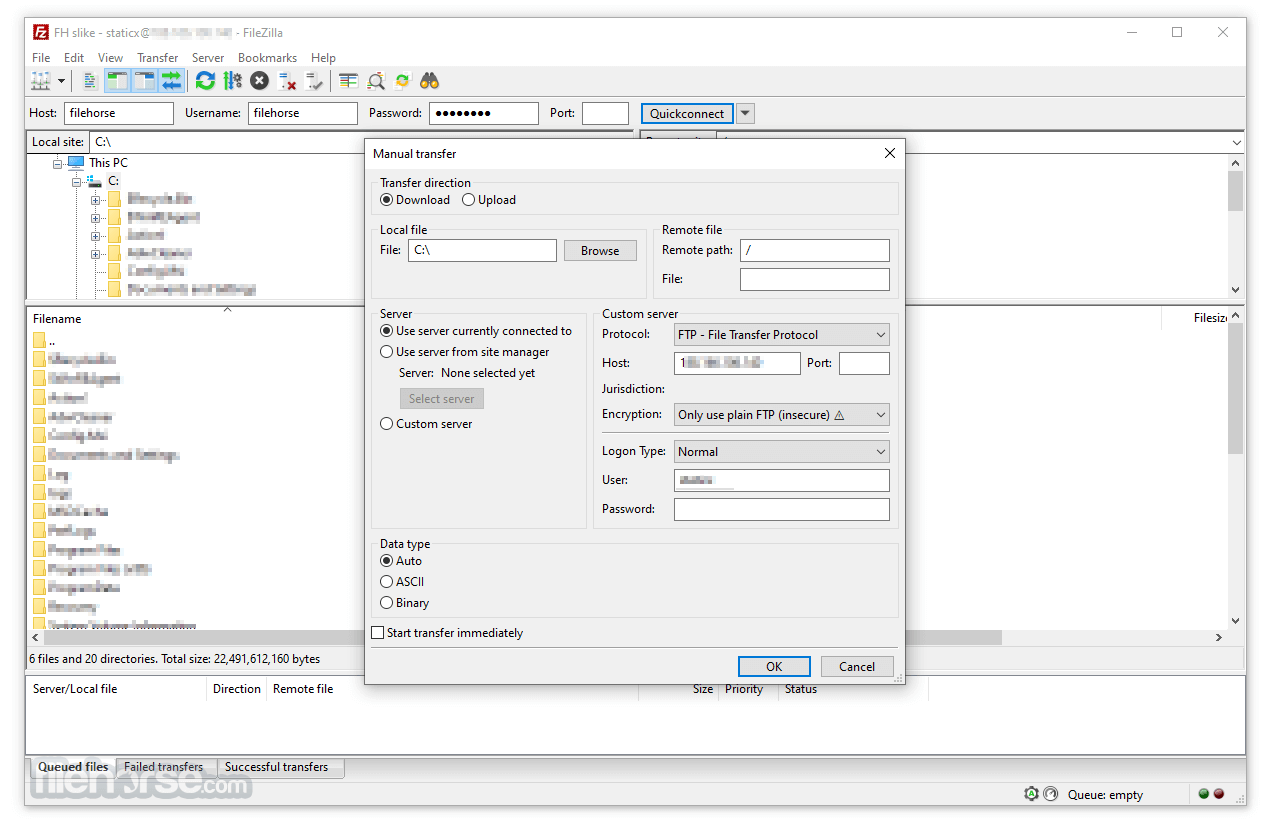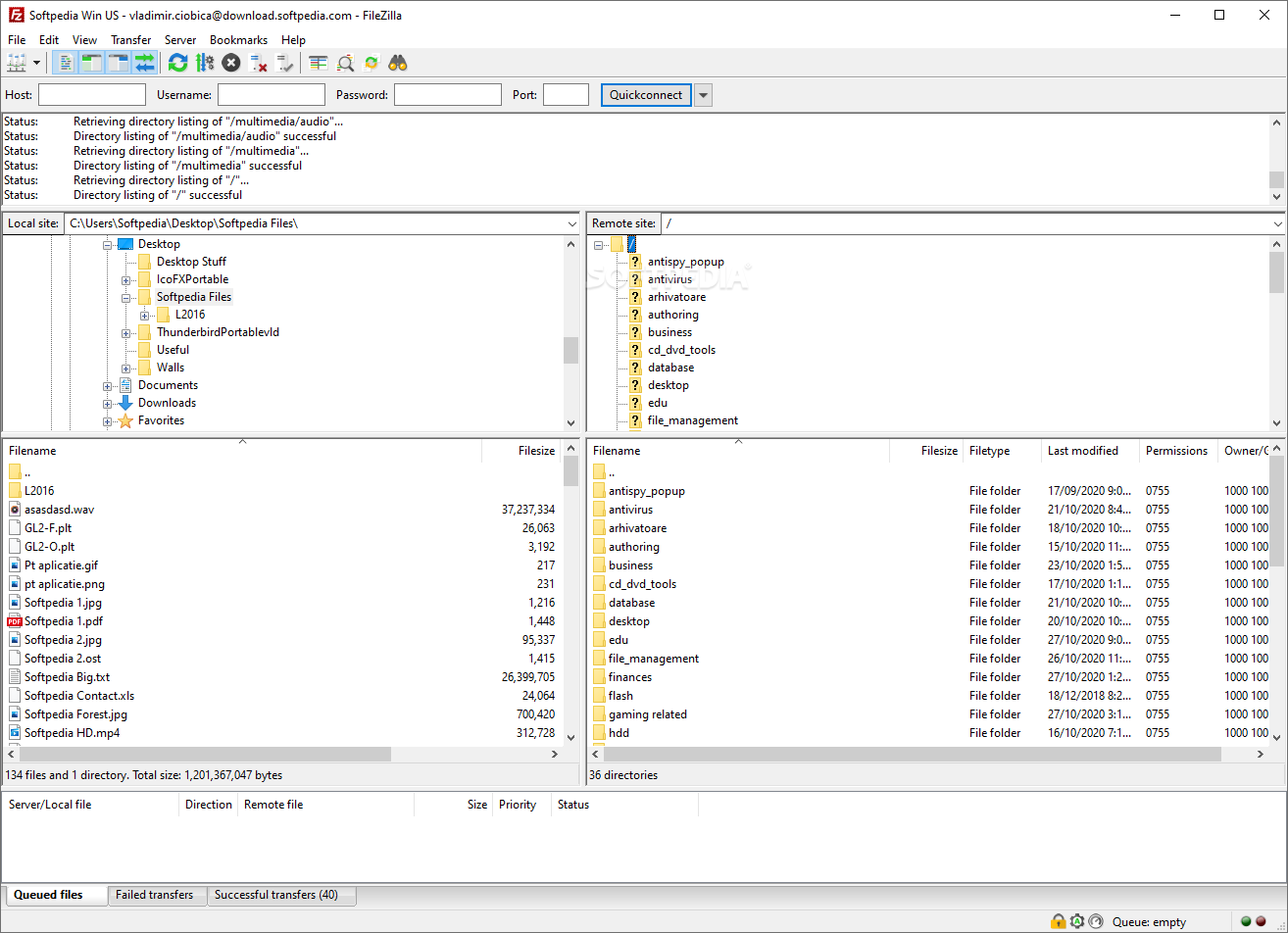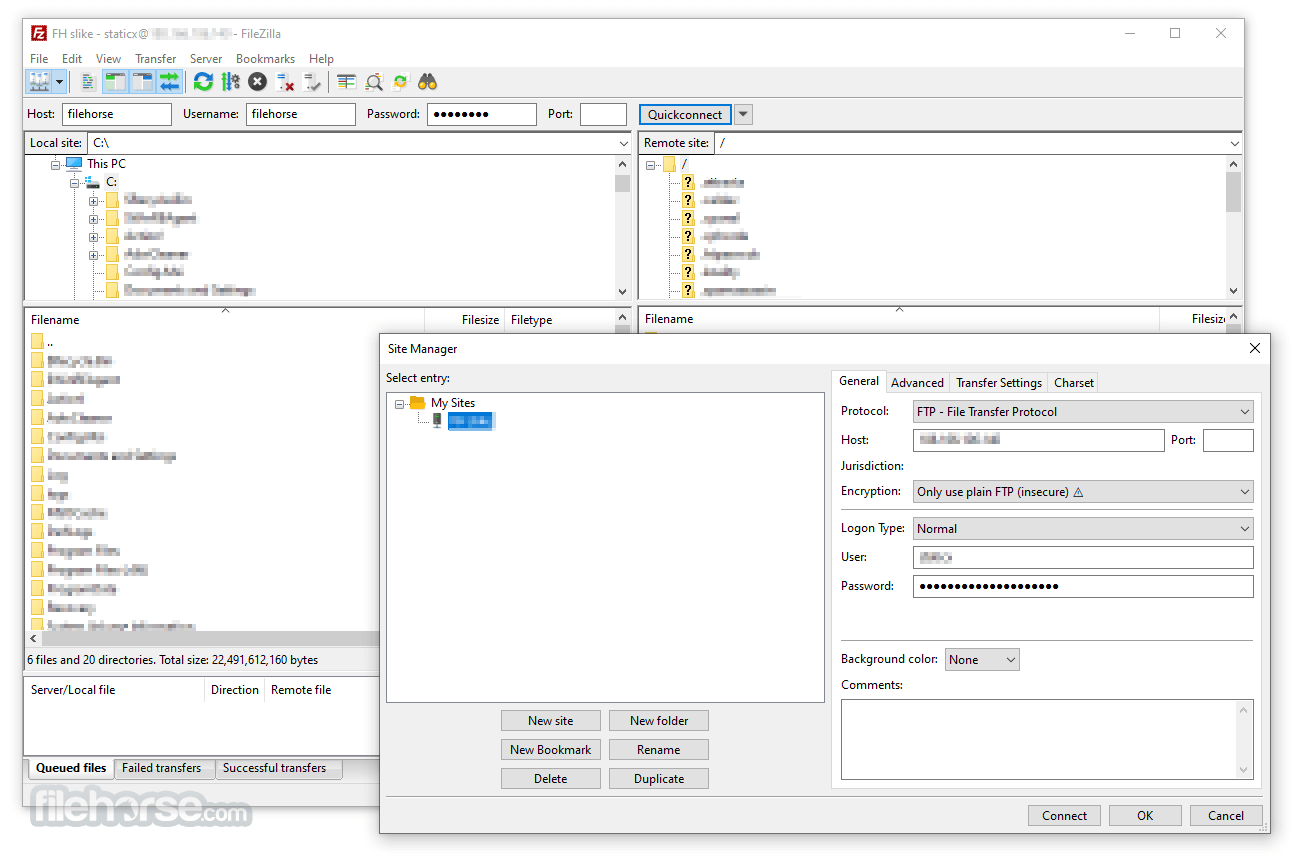FileZilla Download Movie? What You Really Need To Know For Large File Transfers Today
Many people, quite naturally, wonder if they can use FileZilla to download movies, especially when they hear about its file transfer abilities. It's a common thought, you know, because transferring big files is a thing we all do now, with so much digital content around. We're talking about, like, sharing videos or backing up personal media, and sometimes people just wonder about the best tool for that sort of job, right?
Actually, FileZilla is a tool built for a very specific kind of job: moving files between a local computer and a server, often using something called FTP. It's really good at that, and it's been helping folks with server tasks for a long time. So, while it *does* move files, its purpose isn't exactly like a streaming service or a direct movie download site, if you get what I mean.
This discussion will clear up what FileZilla is for and how it actually helps with large files, even those that happen to be movies or other big media items. We'll look at how it helps you manage files you already have access to on a server, and what to keep in mind, too. It's all about using the right tool for the right task, essentially.
Table of Contents
- What FileZilla Really Is: Beyond the Hype
- How FileZilla Moves Files: The Mechanics
- Using FileZilla for Your Media: Practical Considerations
- Important Things to Watch Out For
- Common Questions About FileZilla and Movies (FAQs)
- Exploring FileZilla's True Strengths
What FileZilla Really Is: Beyond the Hype
Understanding FTP and FileZilla's Role
FileZilla is, at its core, an FTP client. FTP stands for File Transfer Protocol. It's a method for moving files between computers on a network, usually from a local computer to a server, or from a server to a local computer. So, in a way, it's like a digital delivery truck for your files, you know?
Many websites, for example, rely on FTP to upload their content. Web developers use FileZilla to put their web pages, images, and other resources onto a web server. It's a pretty standard tool for anyone managing a website or needing to interact with remote storage spaces, actually.
It helps you see the files on your computer and the files on a server side-by-side. Then, you just drag and drop to move things around. This makes it a very direct way to handle files, especially when you have a lot of them or they are quite large, so.
It's Not a Movie Downloader, Per Se
When people search for "filezilla download movie," they might be thinking of something like a torrent client or a streaming application. FileZilla, however, isn't designed for finding movies online or streaming them directly. It doesn't have a search function for content across the internet, or anything like that, more or less.
Instead, FileZilla acts as a bridge. It connects your computer to a server where files already exist. If you have permission to access a server that stores movies, then yes, you could use FileZilla to pull those movie files onto your local machine. But the movies have to be there on the server first, you see.
It's a common point of confusion, and it's understandable why people might make that connection. The term "download" often makes us think of getting new content from the internet. FileZilla is about transferring content you already have access to, or that someone has placed on a server for you, essentially.
How FileZilla Moves Files: The Mechanics
Connecting to a Server
To use FileZilla, you first need to connect to a server. This means you need the server's address, often called a hostname, along with a username and password. Sometimes, you also need a specific port number, too. These details are usually given to you by the server administrator or your hosting provider, naturally.
Once you put in these details and hit "connect," FileZilla tries to establish a link. If everything is correct, you'll see a list of files and folders on the server, right there in the FileZilla window. It's a pretty straightforward process, usually.
This connection can be for a personal server, a web hosting account, or even a shared storage space with friends or colleagues. The key is having the right credentials. Without them, FileZilla won't be able to access anything, of course.
Transferring Large Media Files
When you're connected, moving files is a simple drag-and-drop action. You can select a movie file, or any other large media file, from the server's directory and pull it over to your local computer's directory. Similarly, you can upload files from your computer to the server, too.
FileZilla is pretty good at handling large files, which is why it comes up in discussions about media. It can manage transfers of many gigabytes without much trouble, assuming your internet connection is stable. This is a big plus for things like high-definition movies, you know.
It also offers features like resuming interrupted transfers. So, if your internet connection drops while you're downloading a big movie file, FileZilla can often pick up right where it left off once the connection is back. This is very helpful for those really big files, more or less.
Using FileZilla for Your Media: Practical Considerations
When FileZilla Makes Sense for Movies (and other large files)
FileZilla is a sensible choice when you need to transfer movie files that are already stored on a server you control or have access to. Think about it: maybe you're backing up your personal video collection to a home server, or moving a large video project to a client's server. In these cases, it's really useful.
It's also good for sharing large files with a select group of people. If you have a private server, you can upload a movie or a big collection of photos, and then give trusted friends or family members the login details. They can then use FileZilla to download those files, just like you would, you see.
However, it's not for getting movies from public, unauthorized sources. That's a different kind of tool and a different set of rules. FileZilla is about managing your own digital assets or those you have legitimate access to, essentially. Learn more about FileZilla's capabilities on our site, for instance.
Setting Up for Big Transfers
For big movie files, you might want to adjust some settings in FileZilla. For example, you can sometimes tweak the number of simultaneous transfers. For one very large file, sticking to a single transfer might be best for stability, actually.
Making sure your internet connection is as stable as possible helps a lot. A wired connection, rather than Wi-Fi, can sometimes make a difference for huge downloads. It reduces the chances of interruptions, which is pretty important for those multi-gigabyte files, you know.
Also, having enough space on your local drive is key. A high-definition movie can easily take up several gigabytes. Always check your available storage before starting a big download to avoid issues midway through, too. This is just good practice, naturally.
Speed and Reliability for Media
The speed of your transfer with FileZilla depends on several things. Your internet connection speed is a big one, of course. Both your upload speed to the server and your download speed from it play a part. The server's own connection speed also matters quite a bit, so.
The distance between you and the server can also affect speed slightly. A server located closer to you might offer faster transfer times. However, for most home users, the main factor is usually their own internet service provider's speeds, really.
FileZilla is known for being quite reliable for file transfers. It's a mature piece of software that has been around for a long time. This reliability is why many professionals still choose it for their server management tasks, you know, even with newer options available, more or less.
Important Things to Watch Out For
Software Bundling and Adware: A Cautionary Note
From what we hear in the FileZilla community, the project sometimes bundles extra software with its installers. "If you choose you will download filezilla installers bundled with other crap," is something you might see mentioned in forums. This often means adware or other unwanted programs, actually.
It's really important to be careful during installation. Always choose the custom installation option, if it's available. Then, you can uncheck any boxes for extra software you don't want. This helps keep your computer clean, you see.
Getting your FileZilla client from the official FileZilla project website is always the best idea. Even then, paying close attention during setup is a good practice. This way, you get the tool you want without any unwelcome additions, naturally.
Security Tips for File Transfers
When you're transferring files, especially personal media or anything sensitive, security is a big deal. Always use secure FTP protocols like SFTP or FTPS if the server supports them. These add a layer of encryption, which protects your data from prying eyes, too.
Make sure your server credentials are strong. Use complex passwords that are hard to guess. Never share your login details with anyone you don't absolutely trust. These are just basic security measures, but they make a huge difference, so.
Keep your FileZilla client updated. Software updates often include security fixes that protect against new threats. Regularly checking for updates helps keep your file transfers as safe as possible, you know, which is pretty important today, in a way.
Troubleshooting Connection Issues
Sometimes, things don't work as expected. "From one day to another i couldn't connect to my server with filezilla and get the feeling it's being blocked somewhere since on my laptop it still works fine," is a problem people sometimes report. This suggests the issue might be local to one computer, you see.
If you can't connect, first check your internet connection. Make sure it's working properly. Then, double-check your server details – the hostname, username, password, and port. A tiny typo can stop a connection, actually.
Firewall settings on your computer or network can sometimes block FileZilla. If it works on one device but not another, your firewall might be the culprit. You might need to adjust its settings to allow FileZilla through. Checking the FileZilla forums can often give you answers, as people there talk about these kinds of problems, too. You can also explore server management tips here, for instance.
Common Questions About FileZilla and Movies (FAQs)
Here are some common questions people have about FileZilla and movie downloads:
Can FileZilla find movies for me to download?
No, FileZilla doesn't find movies. It's a tool for moving files that are already on a server you can access. It's not a search engine or a content discovery platform, you know.
Is it safe to download movies using FileZilla?
If you're downloading movies from a server you own or have legitimate access to, and you're using secure protocols like SFTP, then yes, it can be safe. The safety depends more on the source of the movie and your connection settings, actually.
Why is my FileZilla movie download so slow?
Slow speeds usually come from your internet connection, either your own or the server's. The size of the movie file also plays a role, of course. Sometimes, network congestion or server load can slow things down, too.
Exploring FileZilla's True Strengths
So, while FileZilla isn't a direct "filezilla download movie" application in the way many might first think, it's a very capable tool for managing and transferring large files, including media. It's a workhorse for those who need to move things between local computers and remote servers, you know.
Its strength lies in its reliability and its straightforward approach to FTP. For anyone with a server, whether it's for a website, a personal backup, or sharing large files with trusted individuals, FileZilla is a solid choice. It helps you keep your digital life organized, essentially.
It's free software, which is a big plus for many people. And the community around it is pretty active, so you can often find help if you run into problems. So, if you're working with files on servers, FileZilla is definitely worth a look, more or less.

FileZilla (32-bit) Download (2025 Latest)

Filezilla - spainholden

FileZilla 3.29.0 (32-bit) Download for Windows / FileHorse.com